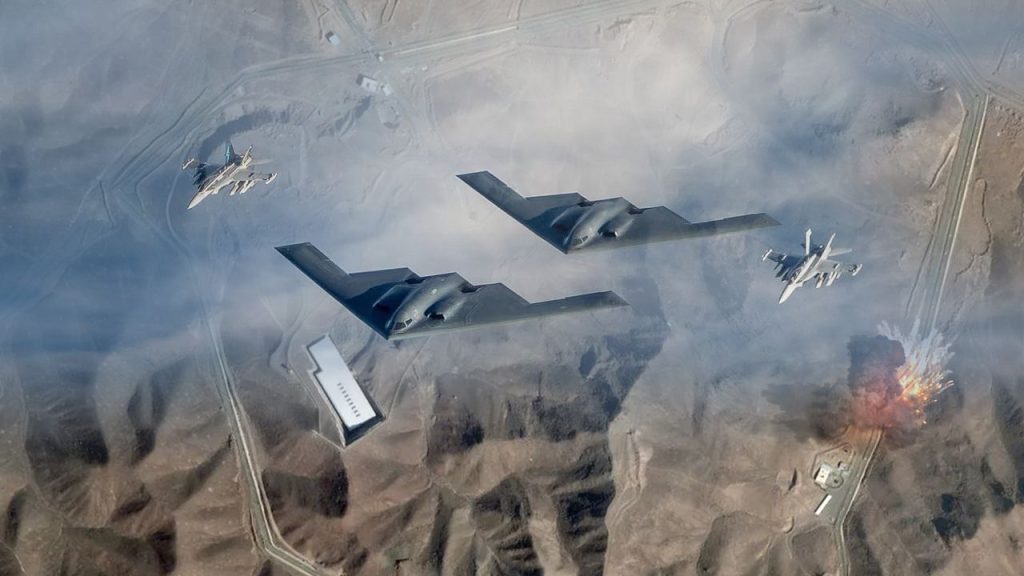JUST like the invasion of Iraq in 2003, any Western-backed military action against Iran today would be a war of choice — not necessity — and a clear violation of international law. There is no UN mandate. There is no imminent threat. And there is no justification under the UN Charter for pre-emptive strikes against a state not engaged in armed aggression.
If the United States, Britain, or any European power chooses to join Israel’s escalating campaign against Iran, they risk not only reigniting the Middle East but also shredding what remains of the international legal order.
The Israeli government, under Benjamin Netanyahu, insists Iran is racing toward nuclear weapons capability — a claim echoed, amplified, and weaponised by hawks in Washington. But this narrative runs counter to the assessments of both US intelligence and the International Atomic Energy Agency. The CIA has repeatedly concluded that Iran halted its nuclear weapons programme in 2003 and has not resumed it. Even Trump’s own former Director of National Intelligence, Tulsi Gabbard, testified that Tehran was not pursuing a bomb.
And yet, that hasn’t stopped Donald Trump — a man who once derided the Iraq invasion as a catastrophic lie — from cheering Israeli airstrikes and threatening Iran with ‘unconditional surrender’. He has called the bombing of Iranian nuclear sites “excellent”, despite international treaties that explicitly prohibit attacks on nuclear facilities due to the catastrophic risk of radiation and civilian harm.
Under Article 56 of Additional Protocol I to the Geneva Conventions, attacking a nuclear power plant is a grave breach of international law unless it provides direct military support — a condition not met here.
In Britain, the government is reportedly split. Leaks suggest Attorney General Richard Hermer has warned that UK participation beyond defensive support could be unlawful. If true, it would be a rare and welcome display of caution — one that must not be ignored.
The legal arguments matter. But so does the precedent. If powerful states start launching offensive wars based on ‘pre-emptive self-defence’ against hypothetical threats, then the rules restraining war collapse entirely. China could cite the same logic to strike Taiwan. India might justify attacks on Pakistan. Russia already invoked it, absurdly, in Ukraine.

Israel’s push for military escalation with Iran has less to do with imminent danger and more to do with a long-standing geopolitical strategy: weaken Iran, isolate it, and maintain regional military dominance. Netanyahu’s narrative mirrors the rhetoric that preceded the Iraq invasion — rhetoric that collapsed under scrutiny, but only after hundreds of thousands had died.
The parallels are too stark to ignore. In 2003, we were told Iraq had weapons of mass destruction. In truth, there were none. The war not only destroyed a nation but also destabilised the entire region, breeding the conditions for ISIS and other violent offshoots. Today, we are told Iran is ‘on the brink’ — and once again, those in power seem willing to ignore their own intelligence services in pursuit of war.
Should the US strike Iranian facilities, it could spark a cascade of retaliation across the region. Iran has warned it may target US bases in Iraq and the Gulf. The Houthis, already engaged in asymmetric warfare, have disrupted global shipping in the Red Sea with modest capabilities. Iran’s far greater reach could see the Strait of Hormuz mined — choking off oil supplies and pushing the global economy toward crisis.
The result? Soaring oil prices, disrupted supply chains, and an inflation shock with global consequences. And paradoxically, military action might only accelerate Iran’s nuclear ambitions — just as the 2003 invasion of Iraq empowered hardliners across the region.
In the UK, Keir Starmer would do well to recall the legacy of Tony Blair, who backed a war based on doctored intelligence and led Britain into a moral and strategic quagmire. That decision continues to haunt British politics. Repeating it in 2025 — under pressure from allies, but with no clear legal or moral justification — would be an unforgivable mistake.













